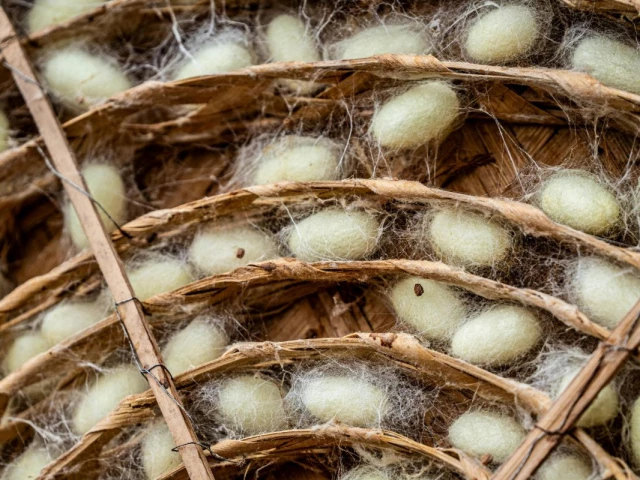Lahore:
Various projects claim to alleviate poverty and strengthen the rural economy of Punjab, but the sector of Non-Timber Forest Produce (NTFP) is continuously neglected despite its potential to connect small businesses and obtain employment to thousands of rural areas, especially women.
Experts are of the opinion that if a proper policy is adopted in this direction, Pakistan will not only reduce poverty but also become self -sufficient in the field of herbal medicine and cosmetics. Fatima Bibi from Changa Manga, a suburb of Kasur that has supported his household expenses by raising silkworms for many years, is a living example.
“I used to earn an income of RS60,000 for RS70,000 by buying silk seeds for RS4,000. I had also received training in fungal growth, but due to lack of practical facilities, the process could not go forward,” Fatima said. Like Fatima, thousands of families who were trained in silk production are now unemployed.
Punjab Forest Department had launched a project worth RS136 million by 2021 for serial, fungal farming, beekeeping and growing medical plants. In the first phase, 1,500 men and 500 women were trained, but the project was scrapped the following year. As a result, all those who had practically dreamed of starting this business were disappointed.
According to Dr. Zafar Siddique, Associate Professor at Government College Lahore, uses 70 to 80 percent of the world’s population still herbal medicine. Pakistan has huge opportunities for growing plants such as Aloe Vera, Basil, Kalonji, Ajwain and Moringa, but we depend on imports from India to meet their demand. “If women get seeds and basic education, agriculture can be easily started through the Kitchen Gardening, which will improve both income and health,” said Dr. Siddiqui.
Farooq Bhatti, Deputy CEO of Sericulture, confirmed that his organization is currently only working on silk making with limited funds, while only experimental projects were underway on mushrooms, honey and herbs. “Japanese Mulberry has been grown in various districts, including Changa Manga, used for food for silkworms as well as for medicine and crafts,” Bhatti revealed.
Rana Saeed Anwar, president of the Silk Farming and Traders Association, claimed the project was aimed at hiring 100,000 families in 2021 and 2022, which was increased to a million in a phase way. “But with the end of the Directorate, this dream was left unfulfilled. About 400,000 people could be hired by beekeeping alone and 700,000 people by silk making, while 30,000 women could earn an income at the household level from growing medical plants,” Anwar said.
Director-General of Punjab Forest Department Azfar Zia assured that the government was obliged to activate the sector for non-timber farming products. “The study of herbs and plants on 1.25 million hectares of forests in Punjab is completed. It is our goal to provide alternative employment from non-time forest products to the nearby communities so that people can benefit from these resources instead of cutting wood,” Zia said.
Experts agree that projects such as forest products that are not temporal forest can guarantee sustainable livelihood for women in rural and small farmers, but a systematic policy and regular funding are the most important requirements.



